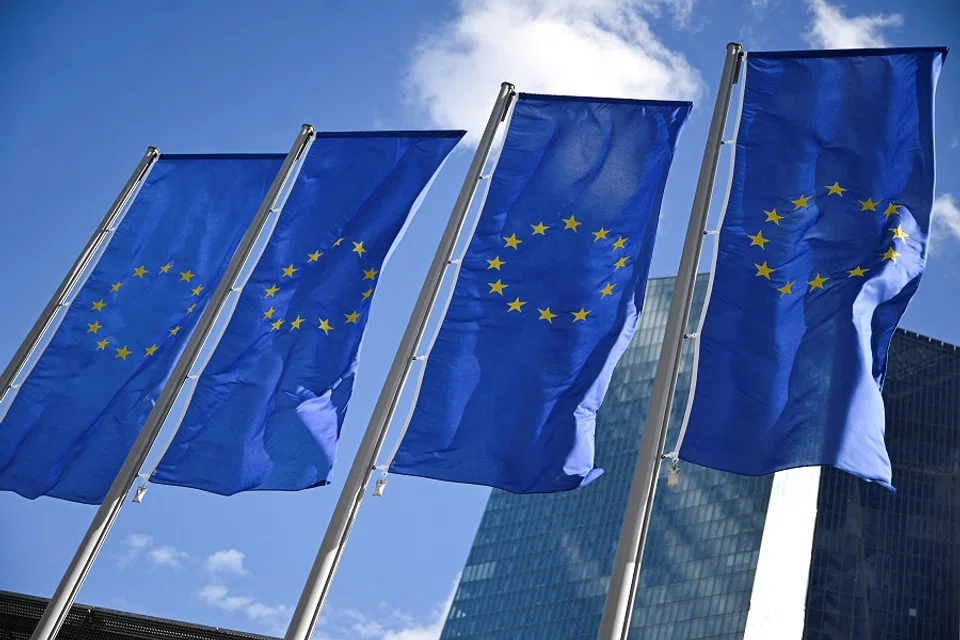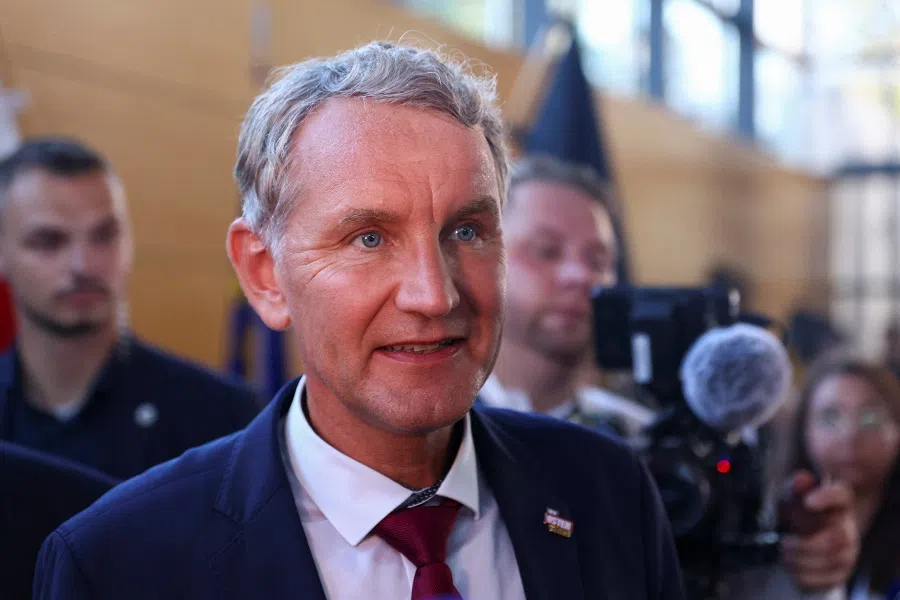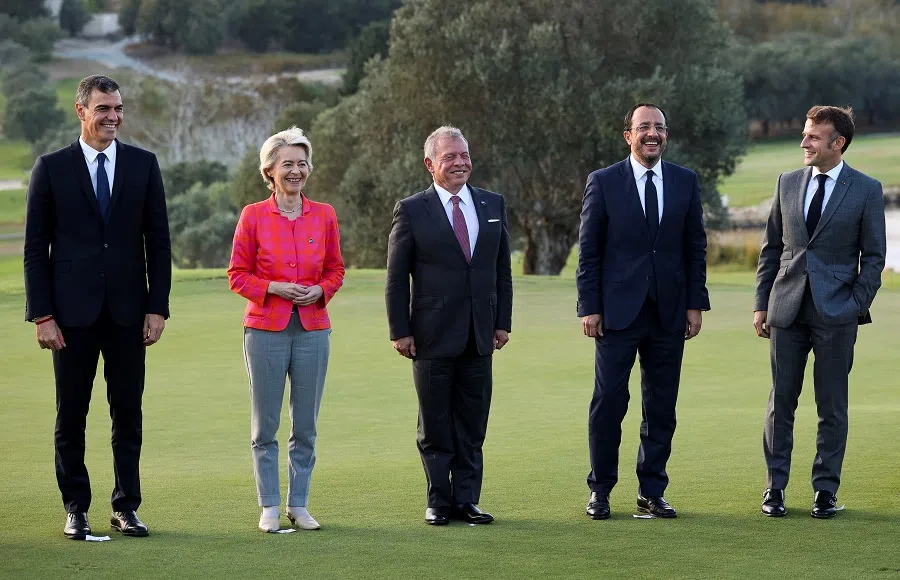Europe’s rightward tilt: A harbinger of declining global power?
Social entrepreneur Jack Huang notes that the rise of the right in Europe is a response to globalisation and immigration issues, which is naturally a source of concern. However, it seems that Europe has also seen a waning of its previous global influence, in terms of geopolitics and economy.

In observing the current rise of the right in Europe, we should not only focus on the electoral victories of right-wing parties, but also examine the deeper reasons behind this phenomenon in the context of the changing global landscape.
While Europe has been the central force of global multilateralism in the past decades, its relative influence seems to have weakened in recent years, which has much to do with globalisation, economic woes and the shift of geopolitical power. In this context, the rise of right-wing forces not only reflects voters’ disappointment with the existing system but also reveals Europe’s internal friction and division amid globalisation.
Economic issues and rise of right-wing forces
Back in 2000, the EU was still seen as a model for global cooperation and free trade. There was constant progress on its internal unification, while its adoption of a single currency, the euro, marked the peak of economic integration. However, just a few decades on, this optimism is fading fast.
According to Eurostat’s data, Europe’s average economic growth rate has fallen to 0.3% since 2010, with southern European countries such as Italy mired in prolonged economic stagnation. Meanwhile, China and Southeast Asian countries are seeing growth rates of over 6%, and the focus of global capital and markets has gradually shifted to Asia.
This economic gap and the rich-poor disparity brought about by globalisation give additional impetus to the rise of right-wing forces. Over the past ten years, Europe has received more than 1.2 million refugees from the Middle East and North Africa, which has ramped up pressure on social welfare systems and triggered competition in the labour market.
Exposes Europe’s gradual marginalisation in world arena
A look around shows that it is these issues that are exploited by right-wing political parties in Germany and France, especially Alternative for Germany (AfD) and the National Rally (RN), to inflame voters.
... the rise of the right is not just the result of Europe’s domestic problems. It also exposes the reality of Europe’s gradual marginalisation in the world arena.

Emphasising the prioritisation of national interests, they blame immigration policy and EU integration as the root causes of social problems. AfD far-right leader Björn Höcke, for example, once stressed in a speech that Germany’s culture and traditions must be protected and should not be damaged by foreign forces. The discourse of rightist leaders like him reflects deep nationalist sentiments and challenges the fundamental values of European integration.
However, the rise of the right is not just the result of Europe’s domestic problems. It also exposes the reality of Europe’s gradual marginalisation in the world arena. While the EU still has a relatively stable framework politically, it is no longer comparable to what it was 20 years ago in terms of economic figures and international clout.
In 2020, the trade volume between the EU and Southeast Asian countries was 215 billion euros (US$234.9 billion), but this was dwarfed by the corresponding figure between the EU and China, at 630 billion euros. This indicates that even though Europe’s economic ties with emerging markets are growing, the continent has not ascended to a dominant position. Meanwhile, it is Asia – particularly China – that is expanding its position in global trade, challenging the EU’s leading role in the global economy.
This weakening of global influence has also affected the political landscape in Europe, where countries are further divided by the debate around immigration, with growing differences in policy between southern and northern European countries.
As core member states like Germany and France advocate for stricter immigration control policies, countries like Italy and Greece, grappling with significant migrant influxes, are calling for increased support from EU resources. This internal discord has intensified the ongoing friction within Europe.
Given, especially, that the global economy is pivoting towards Asia, Europe will lose its previous position as the nucleus of multilateral trade and diplomacy.

How will this trend affect Europe as a whole in the future? Can a closed, conservative Europe with intensified internal conflicts remain competitive in the new climate of globalisation? What is foreseeable is that Europe’s cooperation with the rest of the world will face challenges as right-wing parties continue to emphasise protectionism and national sovereignty. The French government under President Emmanuel Macron has taken the path of a right-wing alliance, but the alliance itself is fraught with instability, reflecting the fragility of the European political landscape.
Asia to the fore
Meanwhile, Asia — especially Southeast Asia and China — will become the main focus of global economic cooperation. As heightened vigilance from EU right-wing parties against Chinese investment hinders the Belt and Road Initiative’s progress in Europe, Southeast Asian countries will seek to strengthen cooperation with the rest of Asia in
response to the uncertainty caused by rising European protectionism.
According to international trade theory, when the economic system of a region moves towards protectionism, global trade liquidity will diminish, and other countries will be prompted to seek new trading partners. This means that the influence of the EU may shrink even further in the future. Given, especially, that the global economy is pivoting towards Asia, Europe will lose its previous position as the nucleus of multilateral trade and diplomacy.
The rise of the right in Europe seems inevitable. It is as much a reaction to internal economic and social problems as it is a backlash against the wave of globalisation. In any case, a divided and closed Europe will find it difficult in the long run to have any place of significance in the new global order. This may be a reality that we are gradually seeing in today’s world: Europe, although still important, is no longer an irreplaceable central force.





